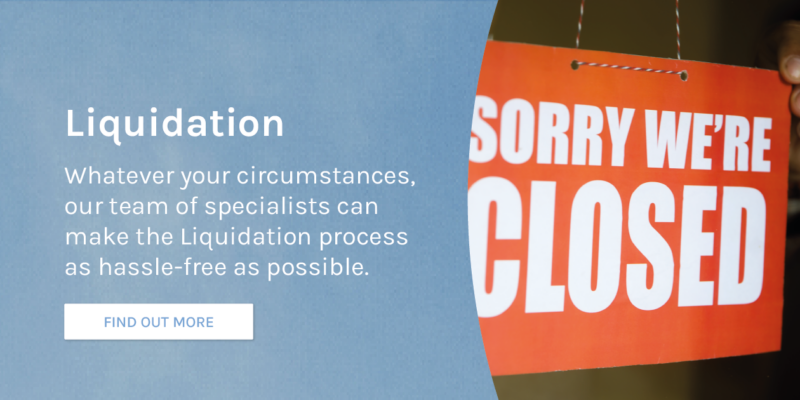The path to understanding the many implications of what happens to directors when a company goes into liquidation can be comparable to charting a course through unknown waters. For a director, liquidation can cast a large and looming shadow of uncertainty over your personal and professional life, both now and in the future.
From the threat of personal liability, to the intricate web of legal and regulatory obligations, the challenges can seem daunting. However, amidst these difficulties, there lie opportunities for growth. In this blog, we aim to answer the question ‘how does liquidation affect directors of a business?’ by delving into the nuanced landscape surrounding the consequences of liquidation for directors, offering insight, guidance, and practical advice to help you navigate this complex terrain.
Consequences of Liquidation for Directors
In the immediate aftermath of liquidation, company directors can face a myriad of consequences that could significantly impact both their personal and professional lives. From possible liabilities to reputational damage, understanding these consequences is key to navigate the tumultuous waters of business insolvency.
One of the most significant repercussions a director can encounter is personal liability for the company’s debts. This liability will most commonly arise as a result of wrongful trading, where the director continues to trade insolvently, despite knowing that the company is facing imminent liquidation. Absolutely any wrongful trading on the part of a business’s director will expose them to the risk of being held personally liable for any and all further contributions to the company debts.
Similarly, directors can face liability for fraudulent trading if they engage in any conduct while running the company with the intent to deliberately defraud creditors. Actions to this end can result in severe penalties, including:
- Fines
- Compensation Orders
- Criminal Prosecution

Directors can also find themselves subject to disqualification proceedings if they are deemed to have acted inappropriately when managing their business. This process can have far-reaching consequences in the short, medium, and the long-term for an individual looking to bounce back after their company is shut down. Disqualification restricts an individual from acting as a director for a specified period of time. This timeframe is dependent on the accusations and their severity. This typically will entail the following structure:
- 2-5 Years: As a result of negligent conduct
- 6-10 Years: Reserved for more serious misconduct
- 11-15 Years: For activity of a fraudulent nature
The consequences of liquidation for directors is not reserved for only legal and regulatory repercussions. They must also be prepared to contend with the tarnishing of their professional reputation, as well as their standing within their industry and the wider business world. Liquidation casts a lingering shadow of doubt over a director, their abilities to lead and manage, as well as their judgement when the chips are down.
Realities of Life for a Director After Liquidation
Liquidation can have a profound and long-lasting impact on directors in both their personal and professional lives, often extending for years beyond the conclusion of the liquidation process itself. A director after liquidation can find their reputation affected, which can in-turn impact their career opportunities in a number of ways. However, this doesn’t have to be the case for all.
Understanding the ongoing implications of liquidation and how it affects directors going forwards is crucial for anybody looking to navigate and come to terms with their role in the immediate aftermath of a difficult liquidation.
How liquidation can affect a director following liquidation include:
Standing may be Impacted
A director can find that their reputation has suffered, sometimes greatly in the wake of a liquidation, particularly if there have been any allegations of misconduct or mismanagement during their tenure at the business.
Even if a director has clearly acted in good faith and can point to them having fully fulfilled their duties with diligence, the ‘stink’ of liquidation will often persist. There is a stigma associated with liquidation in the business world, which can have the potential to linger and harm the credibility of a person for a prolonged period after liquidation.
This blot on a director’s copybook could lead to their future opportunities being restricted, as prospective employers could view an involvement in a failed company unfavourably. Such restrictions are likely to be felt most when seeking a new directorial or leadership role.
Persistent Personal Liability/Legal Issues
It is imperative that a director remains vigilant for a possible legal challenge or claim, even after the conclusion of the liquidation process. While the purpose of liquidation will be to attempt to resolve most outstanding issues, it’s possible for a director to still face personal liability or legal action regarding actions or decisions during their tenure with the company — even after a liquidation has come to an end.
Regulatory Oversight Can Persist
Something a director must remain mindful of after the conclusion of the liquidation process is that it is possible for regulatory oversights to have taken place, these oversights may be corrected after the process has concluded.
A regulatory body may continue to monitor the activities of a liquidated firm’s directors, and could choose to impose sanctions.
Difficulties Starting a New Business
Starting again as director of a company after the folding of a business will be tempting for many. However, there are certain restrictions in place when it comes to this practice. The main limitations, as per Section 216 of the Insolvency Act, 1986, refer to stopping a director from using the same or a similar name as their liquidated business.
This restriction was introduced in order to prevent a director from looking to run up company debts, liquidating in order to jettison these obligations, before moving on to form a succession of similar companies.
With this said, there are some scenarios where you may be able to use a similar name for a new business, including:
- You’ve granted explicit permission from the court to use a similar name
- Creditors and liquidators have given consent
- Key assets have been purchased from the liquidated company
- If the new firm is to engage in different activities or industries, provided this would not mislead customers, stakeholders, or creditors
Issues Getting a Mortgage Could Present Themselves
While not necessarily true in every case, it is possible that the director of a liquidated business could be confronted with some issues should they attempt to take out a mortgage after their company has closed.
Stumbling blocks you can come across during the process of getting a mortgage post-liquidation include:
- Credit score can be impacted
- There may be more hoops that need to be jumped through to prove financial stability
- It’s possible for your lender to request a higher-than-normal deposit
- Specialist lenders may be required
For more information about how liquidation can affect a mortgage, read our dedicated blog.
Options For Directors When a Company Goes Into Liquidation
When faced with the daunting, and often emotional, prospect of company liquidation, directors may be forced to explore various options in order to navigate the process and mitigate its impact on their personal and professional lives. The path forward will be fraught, but there are several avenues a director can consider to secure their interest and minimise any possible liabilities.
One such option is for the firm’s director(s) to insert themselves into the liquidation process as much as possible, without being a hindrance. Engaging proactively in the liquidation process by way of collaborating with the appointed Insolvency Practitioner (IP) or liquidators in order to help facilitate an orderly winding up of company affairs can be vital. This transparency in asset realisation and distribution can be vital in maximising creditor recovery amounts, and also mitigating the risk of personal liability for the director.
The extent of support they get will have a large impact on exactly what happens to directors when a company goes into liquidation. A legal and financial expert will be able to help navigate the many complexities that come with insolvency and liquidation, and help a director to properly assess their rights, their obligations, and what regulations are in place. Specialist support can help directors make well-informed decisions that can juggle safeguarding their own interest, as well as ensure fair treatment to creditors.
In certain situations, it may also be prudent for a director to seek to negotiate a settlement with creditors, or explore a number of alternative restructuring options. While this option may not be available to all, by proactively addressing the financial challenges your company is faced with, and seeking mutually beneficial solutions for all parties, directors may be able to salvage company assets and preserve reputations.
Another important option for directors when a company goes into liquidation is to explore the realities of Directors’ and Officers’ Insurance (D&O). D&O is a form of insurance designed for the express purpose of mitigating a directors’ personal exposure to any claims arising from ongoing insolvency proceedings. D&O insurance provides financial protection for a director against any potential legal costs and damages that may have incurred when defending claims arising from alleged wrongful doing during their stint as director. These claims include:
- Potential breach of duty of care
- Breach of trust
- Negligent errors
- Defamation
- Mismanagement of pension schemes
Ultimately, the best options for a director when a company goes into liquidation will depend entirely on the specific circumstances surrounding their case. By carefully considering their ongoing rights and obligations, seeking expert assistance, and consistently acting with transparency and diligence, directors may be able to navigate the complexities of the liquidation process and safeguard their best interests, upholding their fiduciary responsibilities.
Inquesta: Supporting Directors Before, During, and After Liquidation
For a director looking to navigate life during and after a company liquidation, the support and expertise of a trusted insolvency practitioner can be truly invaluable. At Inquesta, we understand the multifaceted nature of the challenges directors face, and are ideally positioned to provide comprehensive support and guidance every step of the way.
Our dedicated team of experienced professionals specialise when it comes to assisting directors throughout the liquidation process, including anything that may occur in the aftermath. We offer bespoke, tailored solutions to our clients that address their specific needs and objectives, as well as the specifics of their case. Our aim is to empower our clients to feel comfortable navigate the aftermath of liquidation with total confidence.
Whether you’re looking for support complying with regulations, are exploring restructuring options, or looking to mitigate the risk of personal liability, Inquesta are ready to provide you with expert, trusted guidance and support. Contact a member of the team today to learn more about how Inquesta can support you on your journey to financial recovery and renewed success for years to come.
Additionally, browse our library of blogs for additional information or download our dedicated fact sheet: Limiting Director Liability During Liquidation and make sure you’re as secure and protected as possible and have nothing to worry about.
[/fusion_text][/fusion_builder_column][/fusion_builder_row][/fusion_builder_container]



